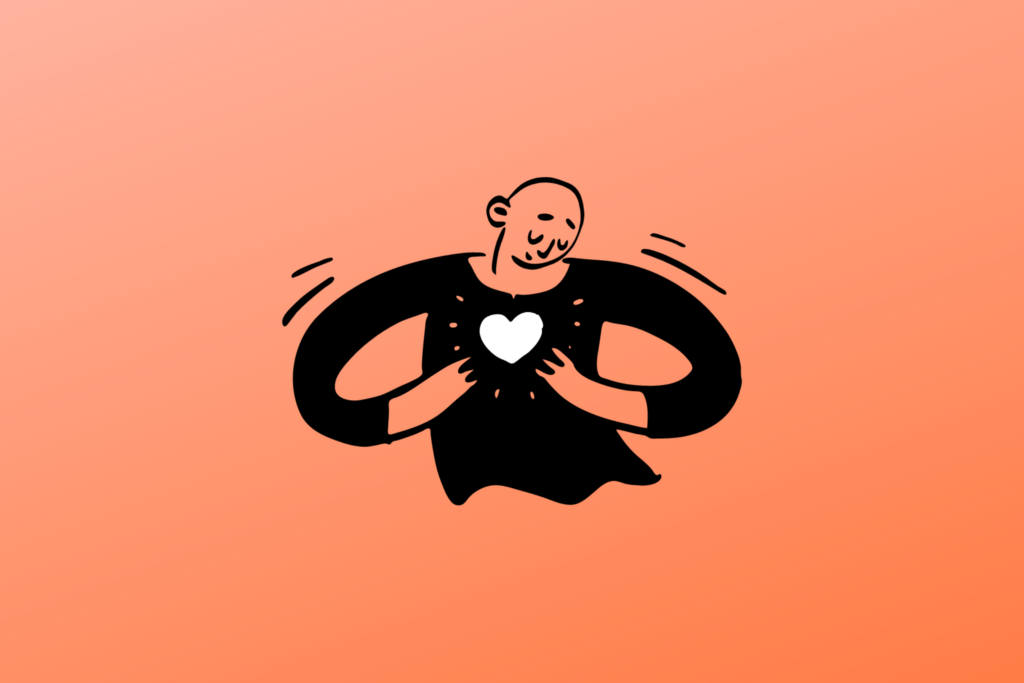Surviving Night Shift:
My Comprehensive Guide
22nd August 2020

NIGHTS. Cue excitement.
As a junior doctor, it is hard to escape the dreaded night shift. I have just begun After Hours (Ward-Call) which is 10 weeks of exclusive non-daytime work (evening shift or night shift). Exciting stuff right. I am usually an early-to-rise and early-to-bed person and my body is not designed for shift work. This is my third rotation which involves night shift work and so I thought I would share some of the tips and tricks that have helped me survive night shift so far. Hopefully you find them useful and please feel free to share your tips and suggestions in the comments section below.
For reference, a night shift usually begins at 10pm at night and finishes around 8-9am the next morning. These hours can vary slightly depending on the roster and which department you are working in.
As a junior doctor, night shifts are most common in rotations such as ED, medicine and ward call/after-hours. Depending on your choice of specialty, you may be asked to work the night shift as a registrar as well.
Aside from doctors, there are plenty of other staff that also keep hospitals running throughout the night. These include nurses, paramedics, orderlies, cleaners, administration staff, switchboard operators and security to name a few. The night shift is also not limited to healthcare workers with plenty of other professions, such as law enforcement, firefighters, hotel staff and taxi drivers also having the pleasure of shift work.
It’s important to develop healthy habits and sleeping routines for your night shifts.
Check out my guide below:

BEFORE NIGHT SHIFT
1. Sleep before your first shift
Method 1: During the day of your first night shift, make sure you wake up earlier than you usually would. Set an alarm. Do some physical activity during the day to ensure your body is tired. Then take a nap in the afternoon (for as long as possible) and wake up before your night shift.
Method 2: Stay awake the night BEFORE your first night shift. Entertain yourself with a hearty Netflix binge or call your friends/family in different time-zones. Go to bed in the early hours of the morning (3am-6am) and sleep during the day. Wake up at night before your shift begins.
I personally prefer Method 1 over Method 2. I find that with Method 2, you are essentially subjecting yourself to another (extra) night shift. That said, everyone is different, and I encourage you to try both and see which works best for you.
The first night shift is ALWAYS the hardest to adjust to, so it is totally normal to feel foggy and sub-par during the first few shifts.

DURING NIGHT SHIFT
2. Decision-making
On night shift, it can often feel like your brain is working in slow-motion. It is hard enough to stay awake, let alone make important decisions! It is important to be aware of this and factor it into your decision-making. If you are unsure about something or have a sick patient, get a second pair of eyes to help you. As a junior doctor, you should always have someone more senior in-person (or on-call) to help you.
3. Snacks
Snacks are the way to go for night shift. I usually take an assortment of snacks with me to keep me energised and full during the shift. E.g. carrot/celery sticks, fruits (bananas, apples), nuts, crackers, muesli bars. Try to avoid sugary snacks during night shift. They often pack a punch of short-term energy, but this is quick to wear off with time and can lead to you feeling even more tired.
It is often difficult to stomach a heavy meal during night shift. Eating a carbohydrate heavy meal in the middle of the night can often worsen feelings of sleepiness/fatigue and can even lead to weight gain. Instead, have dinner at your usual time (before starting your shift) and opt for an early breakfast towards the end of the shift.
4. Stay hydrated
Drink plenty of water throughout your shift. It helps you stay alert and your kidneys will thank you!
DURING NIGHT SHIFT
5. Avoid caffeine in the second half of your shift
It is recommended to avoid caffeine during the second half of your night shift as this can make it difficult to sleep. Whilst coffee can make it easier to stay awake during your shift, it is important not to rely on it to keep you awake. If you do feel like a warm drink post-night shift, consider alternatives such as warm milk, hot chocolate or a soothing tea. Also, for those who don’t drink coffee (like myself), please know that it is very possible to manage night shift without caffeine.
6. Build camaraderie
Whether you are working in the Emergency Department (ED) or on ward call, you are often on night shift with other doctors. Make sure you look after each other and help your colleagues out if they are particularly busy. Don’t forget to have a laugh along the way. Working in a team not only makes you feel supported and also makes the shift go by a LOT quicker.
7. Watch the sunrise
This is something new I have started doing on night shifts. If I have 5 minutes to spare around sunrise, I make my way up to the top floor of the hospital to watch the sun rise. I love doing this for two reasons – 1) it looks amazing! and 2) it means your shift is almost over. You are awake so you might as well make the most of it

BETWEEN NIGHT SHIFTS
8. Try to keep a routine
Just because you are on night shift, doesn’t
mean you need to stop doing all the things that make you feel human. In fact,
these can often make nights more bearable. Use trial and error to see what routine suits you and then make a point to stick to it.
9. Sleep
Sleep is important. Practising good sleep hygiene is even more essential when on night shifts. Ensure you have blinds that can cut out most of the light. Alternatively, use an eye mask. Try and minimise loud noises around you (ensure your roommates/family are aware you are on nights) and turn your phone to silent during the day.
Aim to get at least 6-8 hours of sleep whilst on night shift. It may be difficult to get all of this sleep in one block, and often people find it is broken sleep. This is better than no sleep!
Avoid sleeping tablets. They can often mess up your circadian cycle (even more) and often do not provide good quality sleep that results in you waking up feeling rested. They should only be used as a last resort measure after consulting with your GP.
10. Exercise
Staying active during a run of night shifts is extremely important for your physical and mental health. You don’t have to run marathon’s or become a heavy weightlifter in between shifts. I often find light exercise – such as going for a walk or doing yoga, helps my body feel refreshed.
11. Meal Preparation
When you begin a stretch of night shifts, you often lose track of time and get more and more fatigued as the shifts go on. It is important to prepare beforehand so I would highly recommend meal prepping before you start your run of shifts. Trust me, you will thank yourself for it!
12. Stay safe on your way home
After a long shift, it is important to recognise that you will be fatigued, your reflexes will be impaired, and your reaction times will be slower. When you are driving home in peak hour traffic, this can be the perfect recipe for an accident. If you are feeling sleepy, DON’T drive home. Catch an uber/taxi or alternatively have a short nap in your car until you are feeling more awake. If you start to feel sleepy whilst driving home, pull over on the side of the road and take a short nap. If you live far away, consider taking public transport to avoid falling asleep at the wheel.
13. Stay connected
As you are working through a run of night shifts, it is common to feel socially and physically isolated from the rest of humanity. You often miss out on social activities during the day/evening as you are spending the daylight catching up on some much-needed rest.
To prevent yourself turning into a zombie schedule in a few video/phone calls or go out for a coffee/meal with some friends in between shifts. Even a small amount of human contact between shifts can make them so much more bearable.
If you find feelings of loneliness or isolation are becoming difficult to manage, please contact your GP. They are here to help.
14. Listen to your mind and body
Shift work is tough for everyone. Do not believe anyone who tells you otherwise. It is important to listen to your mind and body. If you are too tired to exercise/meal prep it’s okay! Take an extra nap or indulge in your favourite food. Most importantly, it’s important to be aware that your mind, and body are operating outside their usual comfort-zone and to adjust to this.

FINISHING NIGHT SHIFT
15. Congratulations on finishing!
16. Plan a reward post-night shifts
One of my favourite activities post-night shift is going out for breakfast with the team. This is a great way to celebrate all your hard work over the past few nights and reflect on some of the challenges you may have faced. It’s also a great idea to catch up with friends and family post-nights and have a break from medicine for a little while.
17. Enjoy the after-hours bonus
One of the perks of night shift is the small amount of extra money you get for working out-of business-hours. You can either tuck it away in savings or treat yourself to something special.
18. Get back to a normal sleep-wake cycle
Method 1: After your last night shift, have a short 4-hour nap (10am – 2pm), wake up and do some activities. Go to bed at your usual time.
Method 2: Sleep, sleep, and sleep until the next day.
Remember that night shift is hard for everyone and you are doing a fantastic job by just getting through them! Make sure you look after yourself and see your GP if you need some extra help forming good sleep routines on night shift.
Solider on.
Doctor Nisha








